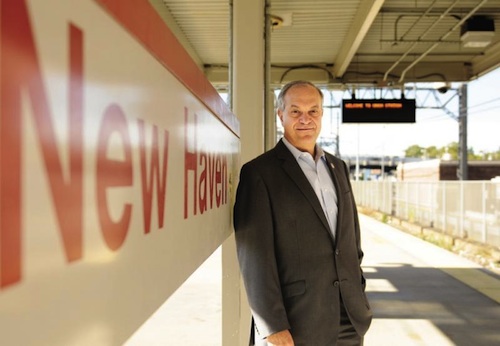I was a teacher for a couple of years, and I’ve stayed close to the education movement ever since — as a volunteer, an observer, and in other capacities. Some of my friends from teaching are now principals or district leaders, and I’ve managed to meet a few others at conferences and through journalists, etc. Everyone within education, for the most part, is driven and committed around it (I know many would disagree with that statement, but bear in mind, I am going off a small sample size). Oftentimes, though, there’s a lot of rancor around education from people outside of it — and of course I don’t mean completely outside, because if those people have children, well, they’re tied to education in some way regardless.
One of the big themes of education in the past few years — probably best nationally-shown by Michelle Rhee and her crusades in DC — is the idea of unions vs. school reformers. Reformers ostensibly dislike unions; they think the unions set it up so that bad teachers can stay in classrooms, being bad, and upholding nearly impossible standards for firing. Unions counter back that reformers scapegoat teachers — and tend to hoist reforms onto classrooms/schools without proper context (this was a big thing in the Rhee discussion).
How you ultimately feel about this likely comes back to (a) what your political affiliation is, (b) how deep your ties to education are, (c) if you have children, and (d) who your family is / where you live. (In a way, those factors shape most things about your life, although I’m omitting religion from this discussion for good measure.) There’s something interesting going on in New Haven and a few other places, though: unions are actually working alongside reformers/politicians to try and shape better schools.
In New Haven, it was union head David Cicarella and Mayor John DeStefano. Take it away, Christian Science Monitor:
Cicarella and DeStefano agreed the teacher evaluation system was broken and work rules were far too rigid. And “no one was happy with the performance of the schools,” Cicarella said. Working from a “Statement of Joint Beliefs,” they hashed out a series of compromises.
DeStefano gave up on ending tenure when the union agreed to a new performance evaluation that would make it easier to fire tenured teachers. He let go of his charter-school quest when the union agreed to let the district convert a few low-performing schools into “turnarounds,” where outside groups could take over, replace teachers, and lengthen school days. The city agreed that ousted teachers would be guaranteed jobs elsewhere in the district. Poor-performing principals would be pushed out, too.
To help negotiate, DeStefano brought in Garth Harries, a top adviser to former New York City Schools Chancellor Joel Klein. Pursuing a more collaborative version of reform than the one he oversaw in New York, Mr. Harries helped settle a contract that laid out a framework for change and then worked with teachers and administrators to create new job evaluations based partly on student performance.
Super hardcore school reformers still dislike this plan; it leaves too much up to the teachers themselves in terms of their evaluations and what counts there. Here’s the thing with that, though: performance reviews in almost every field are a total train wreck and, despite literally decades of research, no one is really sure how to set goals properly anyway. The sticking point shouldn’t be evaluations. Again, on the other side, the sticking point is giving up teacher protections. There’s no perfect situation, obviously; the good thing about this, contextually, is that at the very least the way it was set up gives shared ownership to the two sides. DeStefano left office and, since this is a new program, full-on deep-run data isn’t available about what it’s done to literacy rates and truancy and all that in New Haven. (A major problem with the idea of “education reform” is that oftentimes, people put new plans in place, but because the base idea of “education” takes years to play out, they get impatient and switch to a new concept almost immediately. That’s a broader problem with America as a whole, where we focus on quarterly earnings and what’s right in front of us and make sharp decisions off that stuff. I digress.) No one knows if the plan will work long-term — or, like I said, be abandoned — but the baseline concept of a partnership is a really good one going forward (and other school districts, like St. Paul (MN), are using it too).
After all, whether you’re right-leaning or left-leaning, you gotta believe in whatever educates our children the best, right? (Right?) Cooperation and partnering has to be a good start, if nothing else.

Great article’ I would like to add one thing in respect to your quote: “After all, whether you’re right-leaning or left-leaning, you gotta believe in whatever educates our children the best, right? The quote is yours, but the emphasis is mine. I think privatization of education, generally a politically right wing move, is “bad to the bone” for three reasons; it cost more, it allows schools to close their doors to some children, and impoverishes public schools.